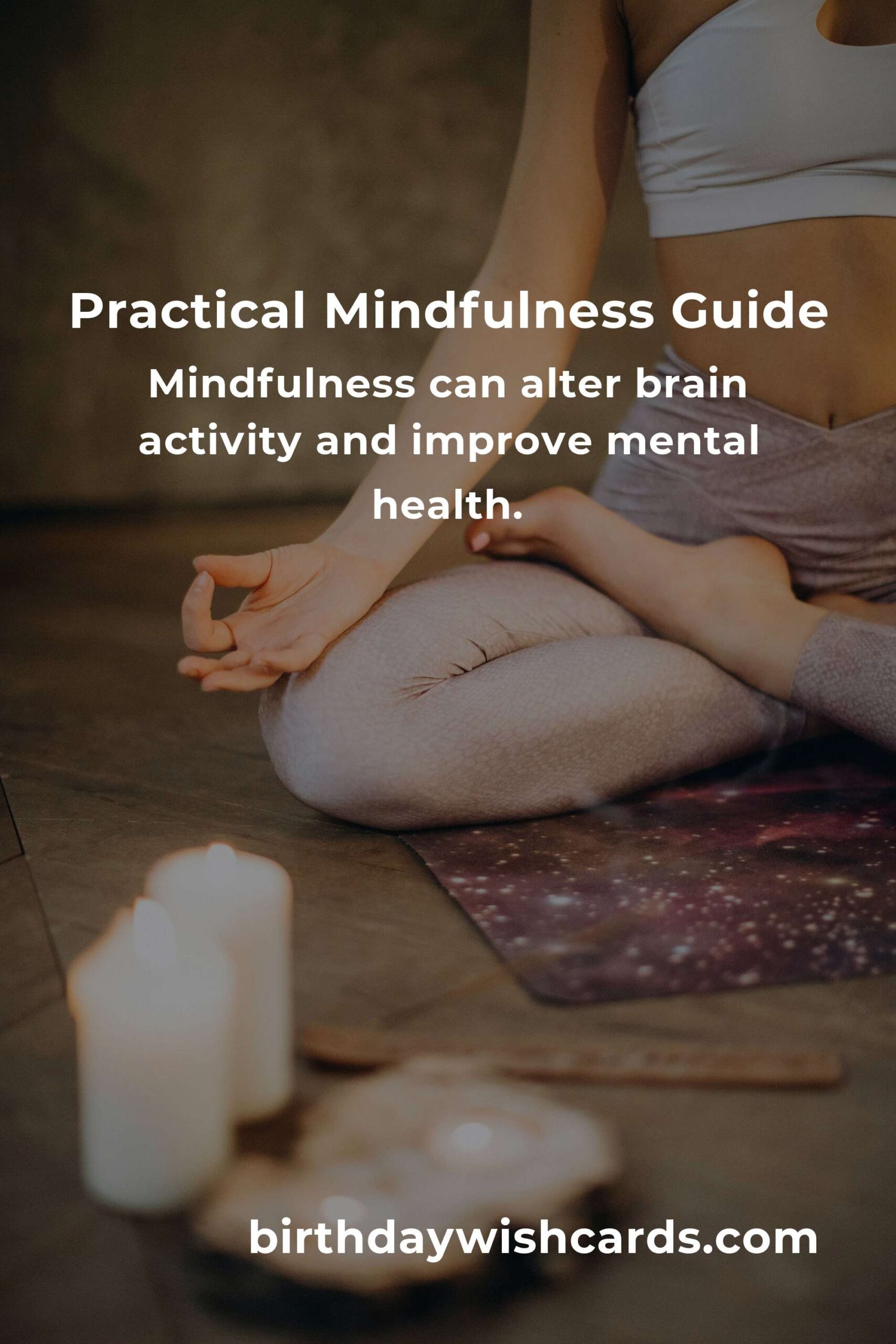
In today’s fast-paced world, the concept of mindfulness has gained significant attention. Practical mindfulness is about integrating mindful practices into everyday life to enhance mental clarity, emotional balance, and overall wellbeing.
What is Practical Mindfulness?
Practical mindfulness involves being present and fully engaged with the current moment without judgement. Unlike traditional meditation, which may require sitting quietly for extended periods, practical mindfulness can be woven into daily activities such as eating, walking, or even working.
The Benefits of Practicing Mindfulness
Research has shown that regular mindfulness practice can lead to a range of benefits including reduced stress, improved concentration, and better emotional health. By focusing on the present moment, individuals can cultivate a greater sense of peace and resilience in the face of life’s challenges.
How to Incorporate Mindfulness into Your Daily Life
Start with Breathing Exercises
One of the simplest ways to practice mindfulness is through breathing exercises. Taking a few minutes each day to focus on your breath can help center your thoughts and reduce anxiety.
Mindful Eating
Mindful eating involves paying full attention to the experience of eating and drinking, both inside and outside the body. This practice can lead to healthier eating habits and a greater appreciation for food.
Mindful Walking
Walking mindfully means being aware of each step and breath. It’s a great way to clear your mind and connect with the environment around you.
Overcoming Challenges in Mindfulness Practice
Many people find it challenging to maintain a mindfulness practice due to distractions or a busy schedule. It’s important to remember that mindfulness is a practice, and it’s okay to start small. Consistency and patience are key to developing a sustainable mindfulness routine.
The Science Behind Mindfulness
Studies have shown that mindfulness can alter brain activity and structure. It enhances regions related to attention, emotion regulation, and introspection. These changes can lead to long-term improvements in mental health and cognitive function.
Conclusion
Practical mindfulness is a valuable tool for navigating the complexities of modern life. By incorporating mindful practices into daily routines, individuals can experience significant improvements in both mental and physical health.
Practical mindfulness is about integrating mindful practices into everyday life. Regular mindfulness practice can lead to reduced stress and improved concentration. Mindfulness involves being present and fully engaged with the current moment without judgement. Simple practices like mindful breathing, eating, and walking can enhance mindfulness. Mindfulness can alter brain activity and improve mental health.
#Mindfulness #Wellbeing #MentalHealth #StressReduction #PracticalMindfulness












